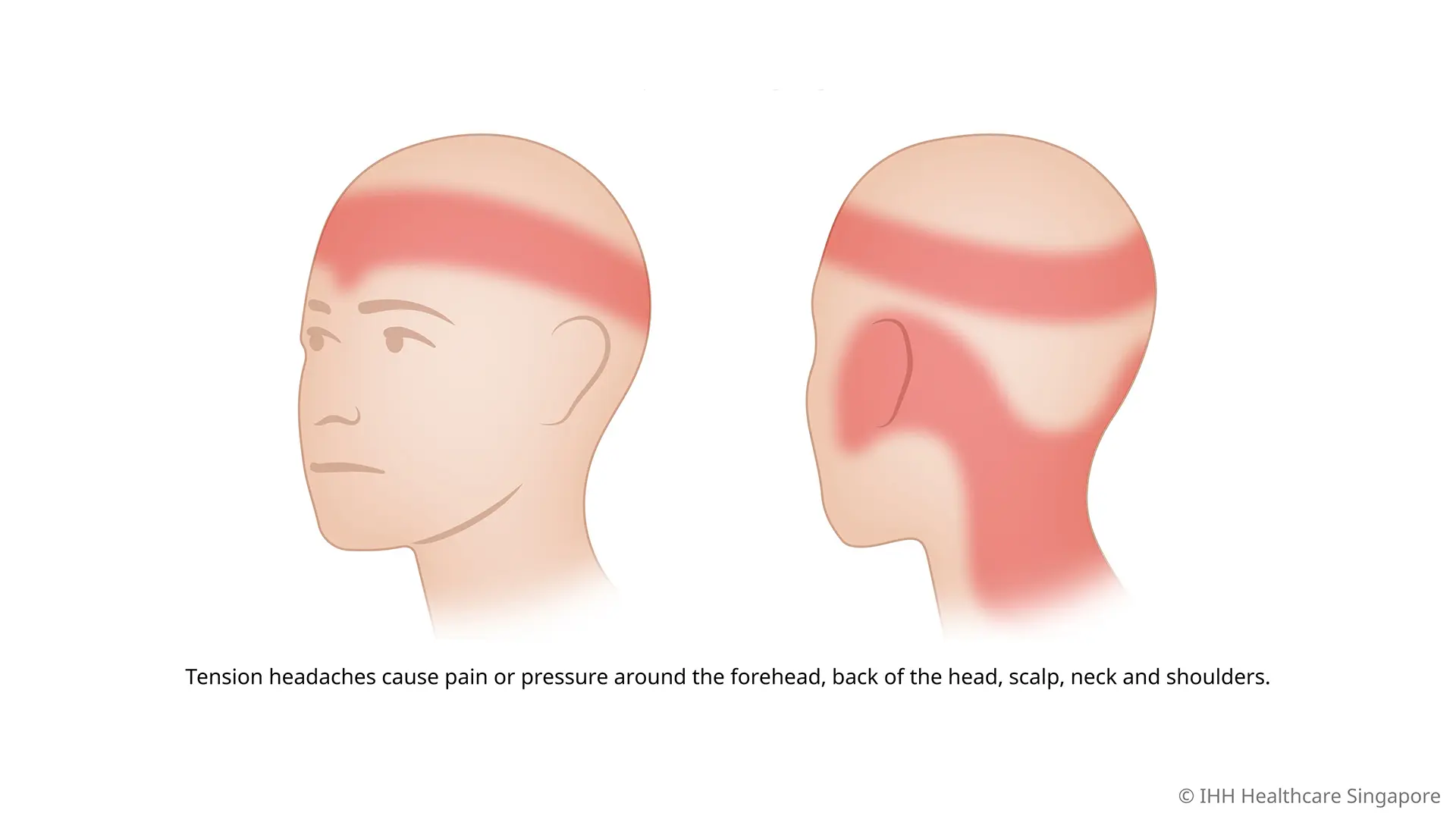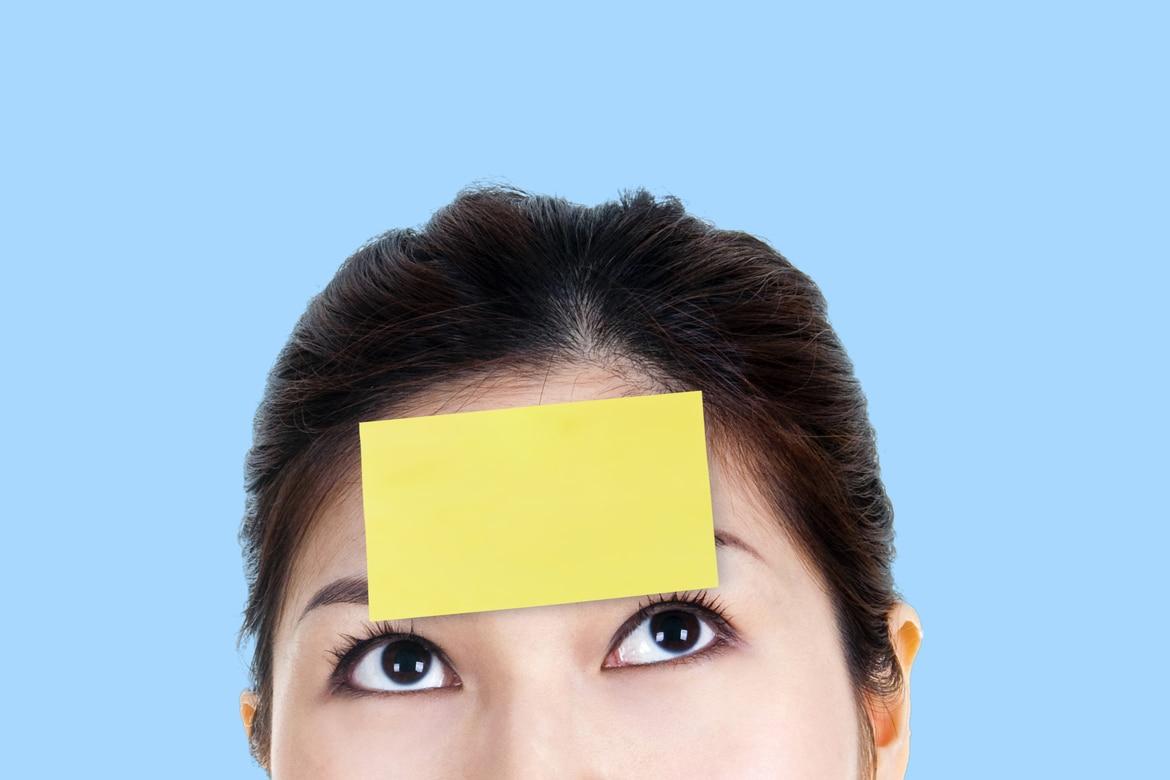
Tension Headache
What is a tension headache?
A tension headache is one of the most common types of headache. It's characterised by a dull, aching pain or pressure around the forehead, temples, or the back of the head and neck. Despite causing discomfort, tension headaches are generally not associated with serious health issues and can often be managed effectively.
Types of tension headache
There are two main types of tension headaches:
- Episodic tension headaches occur sporadically and can last anywhere from a few minutes to several days. Episodic tension headaches are often triggered by stress, fatigue, or muscular tension.
- Chronic tension headaches are more persistent and occur for 15 or more days a month for at least three months. Individuals with chronic tension headaches may experience significant impairment in their daily activities due to the frequency and intensity of the pain.
What are the symptoms of a tension headache?
Common symptoms of tension headaches include:
- Dull, aching pain or pressure on both sides of the head
- Sensation of tightness or pressure across the forehead or the back of the head, often felt like a tight band around the forehead or scalp
- Tenderness in the scalp, neck, or shoulder muscles
- Mild to moderate pain intensity
- May be accompanied by mild sensitivity to light or noise, fatigue, and trouble concentrating.
Unlike migraines, tension headaches typically do not cause other nerve symptoms such as muscle weakness or blurred vision, nausea, vomiting, or severe sensitivity to light or sound.
When to seek medical attention?
You should seek medical attention if you notice the following:
- Increased frequency (happening more than 15 days a month) or significantly more severe headaches. If you notice these changes, over-the-counter pain relievers might not be enough. A doctor can assess your situation and recommend stronger medication or other treatment options.
- Headache characteristics change. If your headaches change in character, become more intense, or are accompanied by new symptoms like fever, neck stiffness, or vision changes, see a doctor to rule out any underlying conditions.
- Medication overuse headaches. If you find yourself relying on pain relievers for headaches more than twice a week, this can lead to medication overuse headaches. A doctor can help you develop a safe and effective treatment plan to break this cycle.
- Pain interferes with daily life. If your headaches are significantly impacting your daily activities, work, or sleep, seeking medical attention can help you find relief and improve your quality of life.
- Symptoms that may suggest other underlying conditions. If you also experience excessive snoring and daytime fatigue, your doctor may perform a sleep study to determine if you might be facing an underlying condition like obstructive sleep apnea, which may be mimicking the symptoms of a tension headache.
What causes a tension headache?
The exact cause of tension headaches is not fully understood, but several factors may contribute to their development, including:
- Stress and anxiety. These emotional states can trigger tension headaches, and tension headaches themselves can worsen stress and anxiety, creating a vicious cycle.
- Poor posture. Hunching over your computer or phone for long periods can strain your neck and shoulder muscles, leading to tension headaches.
- Eye strain. Staring at screens for extended periods or having uncorrected vision problems can contribute to tension headaches.
- Fatigue. Fatigue stresses your body, leading to muscle tension (especially in the neck and scalp), which is a major trigger for tension headaches. Additionally, fatigue disrupts sleep patterns and may contribute to dehydration, both of which can worsen headaches.
- Hunger. When hungry, your blood sugar dips and stress hormones rise, causing muscle tension (especially in the head and neck), which triggers tension headaches.
- Jaw clenching or teeth grinding (bruxism). Problems with the jaw joint, which can involve muscle tension and pain, can also contribute to tension headaches.
- Muscle tension in the neck and shoulders. Tightness in the muscles of the scalp, neck, and shoulders is a major contributor as it is believed that tension headaches start when the muscles between your head and neck knot up, tightening your scalp muscles.
Individuals with a history of tension headaches may also be more prone to experiencing them during periods of increased stress or when exposed to certain triggers.
What are the complications of a tension headache?
While tension headaches themselves are not typically associated with severe complications, chronic or frequent headaches can significantly impact an individual's quality of life:
- Frequent or severe tension headaches can disrupt work, school, and daily activities.
- Tension headaches can make it difficult to fall asleep or stay asleep, worsening fatigue and perpetuating the headache cycle.
- The constant presence of headaches can lead to anxiety and stress, which can in turn trigger more headaches.
- Overuse of pain relievers to treat frequent tension headaches can ironically lead to a condition called "medication overuse headaches," making headaches even worse.
If you experience these complications, consulting a doctor is crucial to develop a comprehensive management plan and prevent tension headaches from impacting your well-being.
How do you prevent tension headaches?
To help prevent tension headaches, consider the following strategies:
- Practice stress management techniques such as deep breathing, meditation, or yoga.
- Maintain good posture, especially when sitting for long periods to prevent muscle strain.
- Take regular breaks from activities that may strain the eyes, such as reading or using electronic devices.
- Ensure adequate hydration and nutrition. Avoid excessive caffeine or alcohol.
- Incorporate regular exercise into your routine to reduce muscle tension and improve overall well-being.
- Aim for 7-8 hours of quality sleep each night.
Identifying and avoiding personal triggers can also be helpful in preventing tension headaches.
This coverage checker is brought to you by Health Insured, an online resource that helps you understand your health coverage in Singapore.
This page has been reviewed by our medical content reviewers.
Need help?
For enquiries, please call
+65 6250 0000 (Orchard) or +65 6898 6898 (Novena)
For appointment bookings, please WhatsApp
+65 8111 7777 (Orchard) or +65 8111 5777 (Novena)
 Brain & Spine Care
Brain & Spine Care








